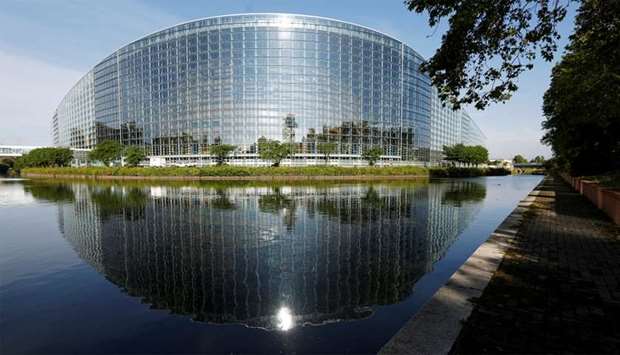* Committee backs cut by slim three vote majority
* Unclear if full Parliament will back the position
* European Commission seen proposing 55% cut
Lawmakers in the European Parliament's environment committee on Thursday voted in favour of a legally binding target for the European Union to cut its greenhouse gas emissions by 60% by 2030 compared with 1990 levels.
The EU wants to upgrade its 2030 emissions cutting target to steer its economy towards becoming ‘climate neutral’ by 2050, and lead global efforts to curb emissions at a rate that would avoid the worst impacts of climate change.
Thursday's vote agreed the committee's position on the EU climate law, a landmark bill to make the bloc's climate goals legally binding.
The committee will rubber stamp its position with another vote on Friday. The full parliament is expected to vote on the law in early October.
A 60% target is more ambitious than the one being considered by the bloc's executive Commission and the majority of EU member states, which must also approve the climate law.
Benchmark EU carbon prices were up around 4% following Thursday's vote to 28.40 euros/tonne. The EU plans to reform its carbon market to deliver deeper emissions cuts over the next decade, a move which analysts expect will drive up the price of permits.
The Commission is expected to propose a 55% EU emissions cut target for 2030 next week. This goal has support from around 12 countries, but some eastern states have refused to commit to any new target before seeing an assessment of the economic costs.
In Thursday's vote, the 60% target passed with a slim three-vote majority, and it not clear if it could gather majority support in the full parliament.
But the hope is that if parliament aims high, it could deter governments from attempting to water down the final goal, said French lawmaker Pascal Canfin, who chairs the environment committee.
‘We all know that 55% is already very ambitious, but that science is even asking for more,’ he said.
The committee also voted in favour of a legally binding requirement for every member state to reach net zero emissions by 2050 - rather than the EU-wide 2050 target favoured by the Commission.
This, and a demand to launch an independent expert body to advise the EU on climate policy, received broad support.

